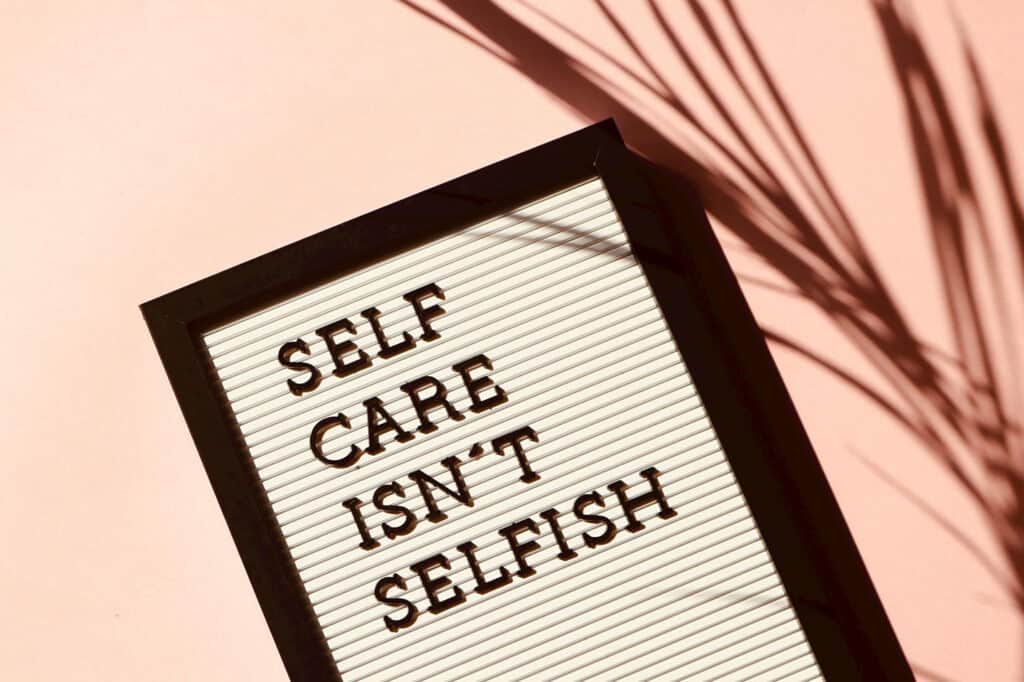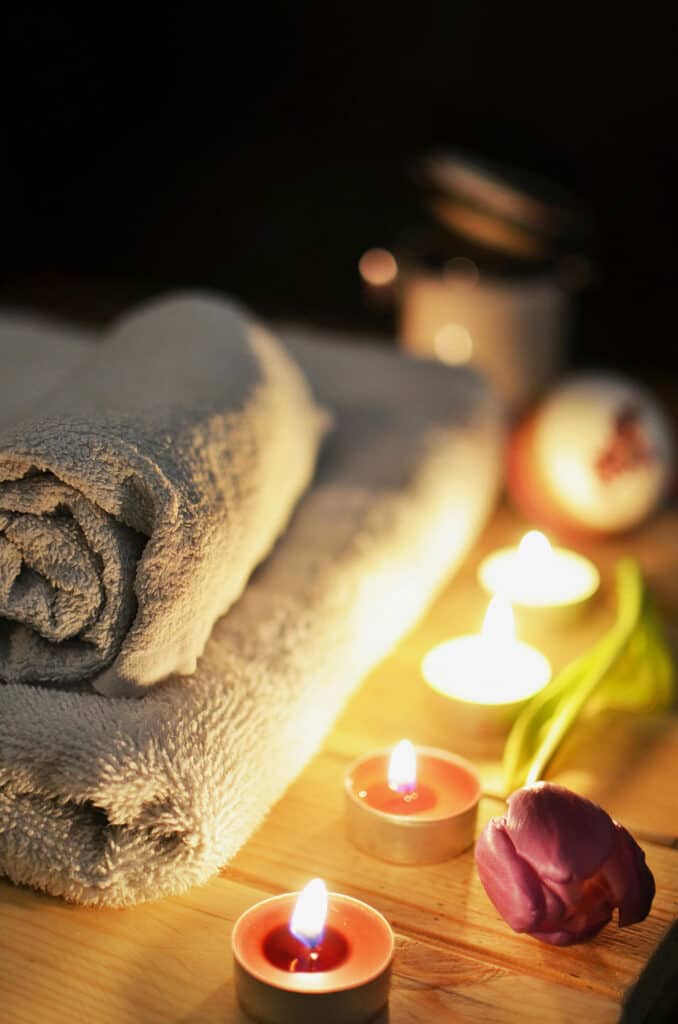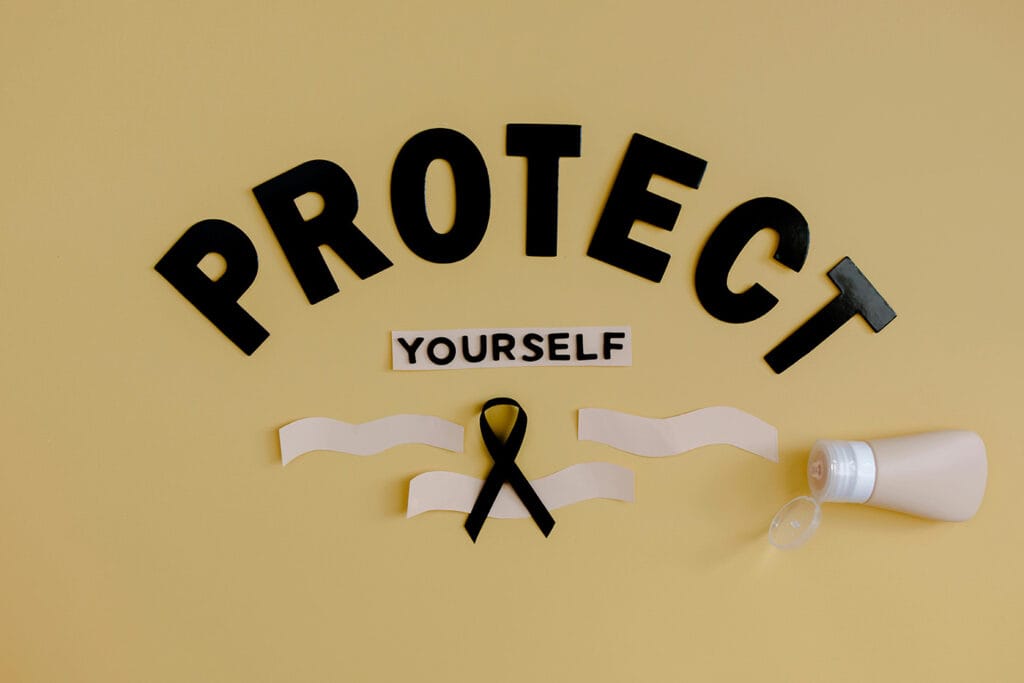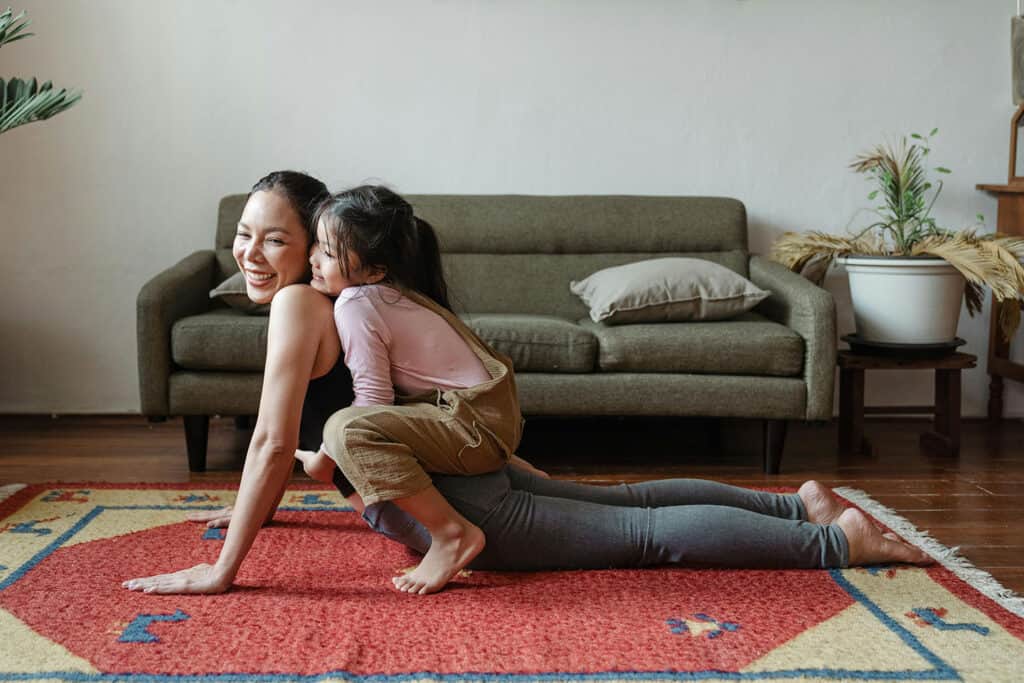


Are you feeling overwhelmed by the demands of daily life, longing for a moment of peace and rejuvenation? As someone who values their well-being and seeks balance in a hectic world, you understand the importance of self-care.
With a deep understanding of your needs and aspirations, backed by years of experience in holistic wellness, we’re here to accompany you with 10 selfcare options in this transformative journey.
In this article, we will explore various facets of self-care, including mindfulness practices, nurturing rituals, and practical tips for integrating self-care into your daily routine.
Together, we’ll explore how simple yet powerful acts of self-love can cultivate a life of vitality and fulfillment
By reading the art of self-care, you’ll not only replenish your energy reserves but also nurture a deeper connection with yourself.
Get ready to experience a life filled with greater joy, resilience, and inner peace
Here are 10 practices for your selfcare:
- Self-Awareness: Know yourself to make better decisions.
- Setting Boundaries: Protect your well-being with healthy limits.
- Physical Self-Care: Exercise, eat well, and sleep enough.
- Emotional Self-Care: Process feelings and find joy.
- Mental Self-Care: Learn, practice mindfulness, be creative.
- Social Self-Care: Connect with supportive people.
- Spiritual Self-Care: Find meaning and purpose.
- Self-Compassion: Be kind to yourself.
- Time Management: Organize tasks for balance.
- Flexibility: Adapt to change with creative solutions.
See also Self Love Routine: 13 Daily Practices for Inner Peace and Serenity
Understanding Self-Care

Self-care is the practice of taking deliberate actions to maintain and improve one’s physical, mental, and emotional health. It involves activities that help reduce stress, increase well-being, and promote a balanced lifestyle.
Understanding self-care involves recognizing the importance of maintaining one’s physical, mental, and emotional well-being through intentional actions and habits.
It means acknowledging the need to take care of oneself to function effectively in daily life and relationships.
It also involves setting boundaries, prioritizing personal needs, and engaging in hobbies or activities that bring joy and fulfillment. Understanding self-care is about creating a balanced lifestyle that promotes overall health and prevents burnout, stress, and other negative outcomes.
Prioritizing Your Self-Care

Prioritizing your self-care isn’t just a simple act; it’s a fundamental practice that can significantly impact your life.
By spending time on yourself, you’re not only reducing stress levels but also embracing the art and importance of nurturing your mental, physical, and emotional well-being.
The benefits are manifold, increased energy, enhanced mental clarity, and a greater capacity for healing. Whether it’s through meditation, spending time in nature, or engaging in physical activities, taking care of yourself allows you to create a world where stress becomes manageable, and life feels more balanced.
Remember, self-care isn’t just about adding on activities; it’s about integrating practices that support your overall health and vitality.
Here are 10 self care options:
1. Self-Awareness

Self-awareness is the cornerstone of the art of self-care, a continuous process inviting us to engage deeply with ourselves. It’s the liberating journey of peeling away layers to free our true selves.
Through self-awareness, we reclaim ownership of our lives, inviting joy, creativity, and nourishment into our souls.
Like artists, we sculpt our well-being, attuning to our emotions and fears with compassion. Each week becomes a canvas for self-discovery as we seek authenticity and growth.
In this dance of self-awareness, we find solace in solitude and strength in connection, forging meaningful friendships rooted in mutual understanding and support.
Here are 5 tips for developing self-awareness:
- Reflect regularly on your thoughts and feelings
- Practice mindfulness and meditation
- Seek feedback from trusted friends and mentors
- Keep a journal to track personal growth
- Set aside time for self-evaluation and goal setting
2. Setting Boundaries

In the art of self-care, setting boundaries emerges as an essential aspect of nurturing emotional well-being. Through engaging stories and creativity, individuals connect with the idea that boundaries aren’t barriers but expressions of self-respect and protection.
From writing to editing, the process of boundary-setting is a challenge worth undertaking for happiness and personal growth. It involves acknowledging grief, recognizing the emotional toll of overextension, and learning to say no without guilt.
By honoring personal limits and communicating needs, individuals empower themselves to live authentically in the present, helping deeper connections and expressing their true selves with clarity and confidence.
Here are 5 tips for setting boundaries:
- Understand your physical, emotional, and mental limits.
- Express your boundaries assertively and respectfully.
- Maintain and enforce your boundaries regularly.
- Ensure your needs are met without guilt.
- Talk to friends or a therapist for guidance.
3. Physical Self-Care

Physical self-care is a key component of overall well-being, intertwining with psychological and mental health. It goes beyond mere exercise routines to encompass practices like meditation, yoga, and nurturing the body.
When we prioritize physical self-care, we create a positive image of ourselves and our capabilities. This personal investment is meaningful, offering a sanctuary to recharge and rejuvenate.
Through yoga and other physical activities, we create a symbiotic relationship between mind and body, combating conditions like depression and stress.
Here are 10 examples of physical self-care practices:
- Exercise: Engaging in regular physical activity to maintain overall health and fitness.
- Healthy Eating: Nourishing your body with balanced meals and staying hydrated.
- Sleep: Prioritizing adequate and quality sleep for rest and recovery.
- Hygiene: Maintaining personal hygiene through regular grooming and cleanliness.
- Medical Check-ups: Attending regular appointments with healthcare professionals for preventive care.
- Relaxation Techniques: Practicing methods such as deep breathing, meditation, or yoga to reduce stress.
- Massage or Self-Massage: Using techniques to relax muscles and improve circulation.
- Skin Care: Establishing a skincare routine to cleanse, moisturize, and protect the skin.
- Physical Boundaries: Setting and maintaining boundaries to protect your physical well-being.
- Sun Protection: Applying sunscreen and wearing protective clothing to prevent sun damage.
4. Emotional Self-Care

Emotional self-care is a vital aspect of the art of self. It revolves around nurturing your psychological well-being and mental health. Taking care of your emotional needs not only benefits you but also enhances your relationships with others, including your partner.
It involves practicing self-care routines that create a sense of love and appreciation for yourself. Deep Meditation and mindfulness practices can be powerful add-ons to your emotional self-care arsenal, helping you manage stress and cultivate inner peace.
By attending to your emotional world, you create a harmonious connection between your mind and body, helping a healthier and more resilient sense of self.
Here are 5 tips for emotional self-care:
- Spend a few minutes each day reflecting on your emotions.
- Regularly communicate with loved ones.
- Ensure you get enough sleep to manage stress.
- Reduce exposure to negative media and environments.
- Be kind to yourself and avoid harsh self-criticism.
See also Self-Love Activities: 12 Useful Activities Honoring Your Mind, Body, and Soul
5. Mental Self-Care

Mental self-care is the cornerstone of overall well-being, intertwining with physical health and inner peace. Sufficient sleep replenishes the mind, helping clarity and resilience. It’s about nurturing the inner self, identifying feelings, and managing anxiety through mindful practices.
Creativity becomes a pathway to expression, relieving stress and reconnecting with the soul. Immersion in nature offers a sense of freedom and joy, alleviating fears and nurturing the soul.
Mental self-care encompasses various aspects, emphasizing the importance of prioritizing mental well-being in the art of self-care.
It’s about recognizing the profound impact of mental health on our lives and embracing practices that promote balance and fulfillment.
Here are 5 tips for mental self-care:
- Write down your thoughts and feelings to process them.
- Allow yourself short breaks throughout the day to recharge.
- Spend time with friends and loved ones to boost your mood.
- Reflect on what you’re thankful for to cultivate positivity.
- Reduce exposure to screens to prevent mental fatigue.
6. Social Self-Care

Social self-care is an essential aspect of the art of self-care, inviting individuals to explore meaningful connections with others. It involves nurturing relationships that recharge our spirits and enrich our lives.
By prioritizing social interactions and building a supportive network, we create an image of community and belonging.
This form of self-care acknowledges the importance of human connection in combating feelings of loneliness and anxiety. Through shared experiences and genuine connections, social self-care replenishes our emotional reserves and enhances our overall well-being.
In life, it is a vital thread that weaves together joy, support, and a sense of belonging.
Here are 8 examples of social self-care options:
- Quality Time with Loved Ones: Spending time with friends, family, or loved ones who uplift and support you.
- Joining Groups or Clubs: Participating in groups or clubs that align with your interests or hobbies.
- Volunteering: Contributing your time and skills to causes or organizations you care about.
- Attending Social Events: Participating in social gatherings, parties, or community events.
- Networking: Building and nurturing professional relationships for career growth and support.
- Support Groups: Joining support groups or therapy sessions for sharing experiences and receiving support.
- Collaboration: Working with others on projects or initiatives that inspire and motivate you.
- Community Engagement: Getting involved in community activities or initiatives that promote social connection and cohesion.
7. Spiritual Self-Care

Spiritual self-care is a practice that nurtures the soul and connects us to something greater than ourselves. It involves aligning our actions with our beliefs and values, creating a sense of purpose and meaning in life.
Focusing on the present moment and cultivating mindfulness, spiritual self-care allows us to identify and release fears, anxieties, and negative thoughts.
Through practices such as meditation, prayer, or spending time in nature, we free our minds and bodies from the stresses of daily life, finding solace and tranquility.
Additionally, spiritual self-care encourages creativity and helps connections with others, whether through shared beliefs or deep conversations with friends.
Prioritizing spiritual self-care enhances all aspects of our well-being, promoting inner peace and fulfillment.
Here are 9 tips for Spiritual self-care:
- Set aside quiet time for reflection.
- Connect with nature to help a sense of spirituality.
- Engage in practices aligned with your beliefs, such as prayer or rituals.
- Surround yourself with supportive and like-minded individuals.
- Read spiritual texts or inspirational literature for guidance and inspiration.
- Practice gratitude to nurture a positive outlook and spiritual connection.
- Volunteer or engage in acts of kindness to promote a sense of purpose and fulfillment.
- Spend time in creative pursuits that uplift your spirit, such as art or music.
- Regularly attend spiritual or religious gatherings to foster community and connection.
8. Self-Compassion

Self-compassion, often misunderstood, is the antidote to fear and self-criticism. It’s the ability to connect with oneself on a profound level, acknowledging imperfections without judgment.
When practiced, self-compassion becomes a soothing balm for the restless mind, better sleep, and emotional well-being.
It involves treating oneself with kindness and understanding, especially when facing challenges or setbacks. This practice extends beyond the mind, helping the body with gentleness and care.
Through self-compassion, individuals cultivate a sense of acceptance and warmth towards themselves, nurturing a healthier relationship with both the inner and outer worlds.
Here are 7 tips for Self-compassion:
- Treat yourself with the same compassion you would offer to a friend in need.
- Stay present and acknowledge your thoughts and feelings without judgment.
- Accept that making mistakes is a natural part of being human.
- Recognize and validate your feelings, even if they are difficult or uncomfortable.
- Avoid setting overly high standards for yourself and acknowledge your limitations.
- Counter negative self-talk with positive affirmations and compassionate responses.
- Be gentle with yourself during difficult times and remind yourself that you deserve love and kindness.
9. Time Management

Effective time management is the bridge that connects our aspirations to reality. It’s not merely about squeezing tasks into a tight schedule; it’s about prioritizing what truly matters.
By allocating time for self-care practices among our responsibilities, we invest in our mental and physical well-being.
Yet, between the hustle, we often sacrifice sleep, a crucial component of self-care. Prioritizing enough sleep isn’t a luxury; it’s a necessity. It rejuvenates our bodies, sharpens our minds, and enhances our productivity.
Time management isn’t just a skill; it’s a mindful approach to life, ensuring we have the time to nurture ourselves and our dreams.
Here are 10 time management techniques:
- Pomodoro Technique: Work in intervals (typically 25 minutes) followed by short breaks to maintain focus and productivity.
- Prioritization: Identify and tackle the most important tasks first to ensure critical work gets done.
- Time Blocking: Allocate specific time slots for different tasks or activities to maintain focus and avoid multitasking.
- To-Do Lists: Create lists outlining tasks and prioritize them to stay organized and on track.
- Batching: Group similar tasks together to streamline workflows and minimize context switching.
- Setting Goals: Define clear objectives and deadlines to guide tasks and improve productivity.
- Limiting Distractions: Minimize interruptions by managing notifications, setting boundaries, or working in quiet environments.
- Using Technology: Utilize apps and tools for task management, scheduling, and tracking progress.
- Reviewing Progress: Regularly assess and adjust plans to stay aligned with goals and deadlines.
- Delegation: Delegate tasks when possible to focus on higher-priority activities and improve efficiency.
10. Flexibility and Adaptability

Flexibility and adaptability are essential qualities in navigating life’s ever-changing landscape. In the realm of self-care, they serve as guiding principles, allowing individuals to adjust their practices to suit their evolving needs and circumstances.
Flexibility enables us to understand different approaches to self-care, recognizing that what works for one person may not work for another.
Meanwhile, adaptability empowers us to respond effectively to unexpected challenges and setbacks, finding creative solutions to maintain our well-being.
Together, these qualities help resilience and empowerment, empowering us to thrive amidst uncertainty and change, making flexibility and adaptability indispensable components of a holistic self-care toolkit.
Here are 7 tips for Flexibility and adaptability:
- Cultivate a mindset that views change as an opportunity for growth rather than a threat.
- Be receptive to new ideas, perspectives, and approaches, even if they differ from your own.
- Reflect on past experiences to extract lessons and insights that can inform your approach to future situations.
- Understand that things may not always go as planned and practice patience.
- Focus on the present moment rather than dwelling on past regrets.
- Approach challenges with optimism and a positive attitude, knowing that setbacks are temporary.
- Be willing to compromise and find creative solutions that accommodate different perspectives.
See also Self-Love Checklist: Daily Affirmations for Positive Mindset
The Art of Self-Care: A Recap

In practicing the art of self-care, it’s imperative to remember that it’s not a luxury, but a necessity for our well-being.
By prioritizing self-awareness, setting boundaries, and nurturing our physical, emotional, and mental health, we honor ourselves and cultivate resilience in the face of life’s challenges.
Through regular self-care practices, whether it’s carving out time for rest, engaging in activities that bring us joy, or seeking support from loved ones, we replenish our energy and strengthen our capacity to navigate life’s complexities with grace and authenticity.
Ultimately, the art of self-care is a deeply personal journey of self-discovery and self-love, empowering us to lead fulfilling and meaningful lives.


